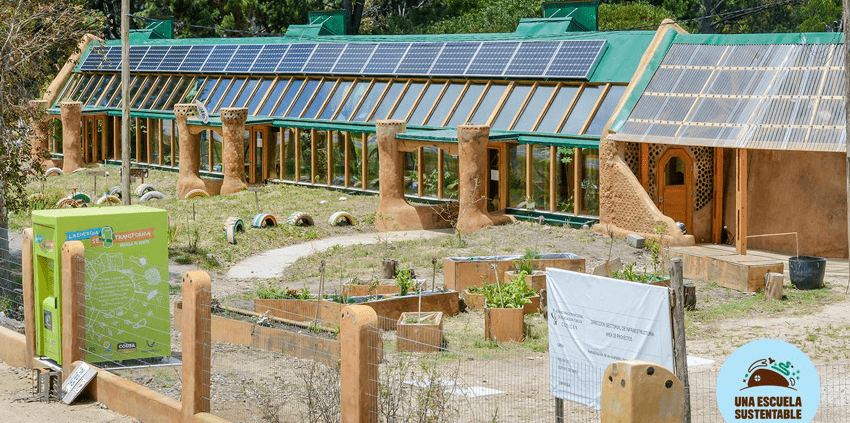A sustainable school in Uruguay
Did you know there’s a state-run rural school built with 60% of recycled materials and 40% of traditional materials? Well, there is. This sustainable school is in the coastal town of Jaureguiberry, in Uruguay.
The school was founded thanks to the non-profit organisation Tagma, with fundamental support in the building process from Earthsip Biotecture, which for more than 45 years has been devoted to building self-sustaining homes.
What are the basic principles that guided the construction of the school? In keeping with the Earthship method of construction, the school has been built with:
• Natural and recycled materials: 60% recycled materials (tyres, glass and plastic bottles, tin cans and cardboard).
• Solar heat and thermal mass: constant temperature.
• Electricity from the sun: the school is totally self-sustaining as regards electrical consumption as the supply is guaranteed by its solar panels and storage batteries.
• Water harvesting: the roof of the building captures enough rainwater for the school’s consumption needs.
• Wastewater: the system reuses grey water inside the building and for the vegetable garden, while the black water is sent out to a septic tank made from recycled materials, which empties into a botanical cell that works like a wetland.
• Food production: the indoor vegetable garden is designed to produce food all year round, which provides breakfast for the children and the school staff.
The school has room for 100 boys and girls and has been viable thanks to the enormous support both from the local population and on the institutional level, both from the local administration and from the state government. What’s more, it has also received financial support from private companies, many of them local.
It took just seven weeks to build the school’s main building measuring 270 sq m. Two hundred people took part in the work, including volunteers and students from Uruguay and 30 other countries.





